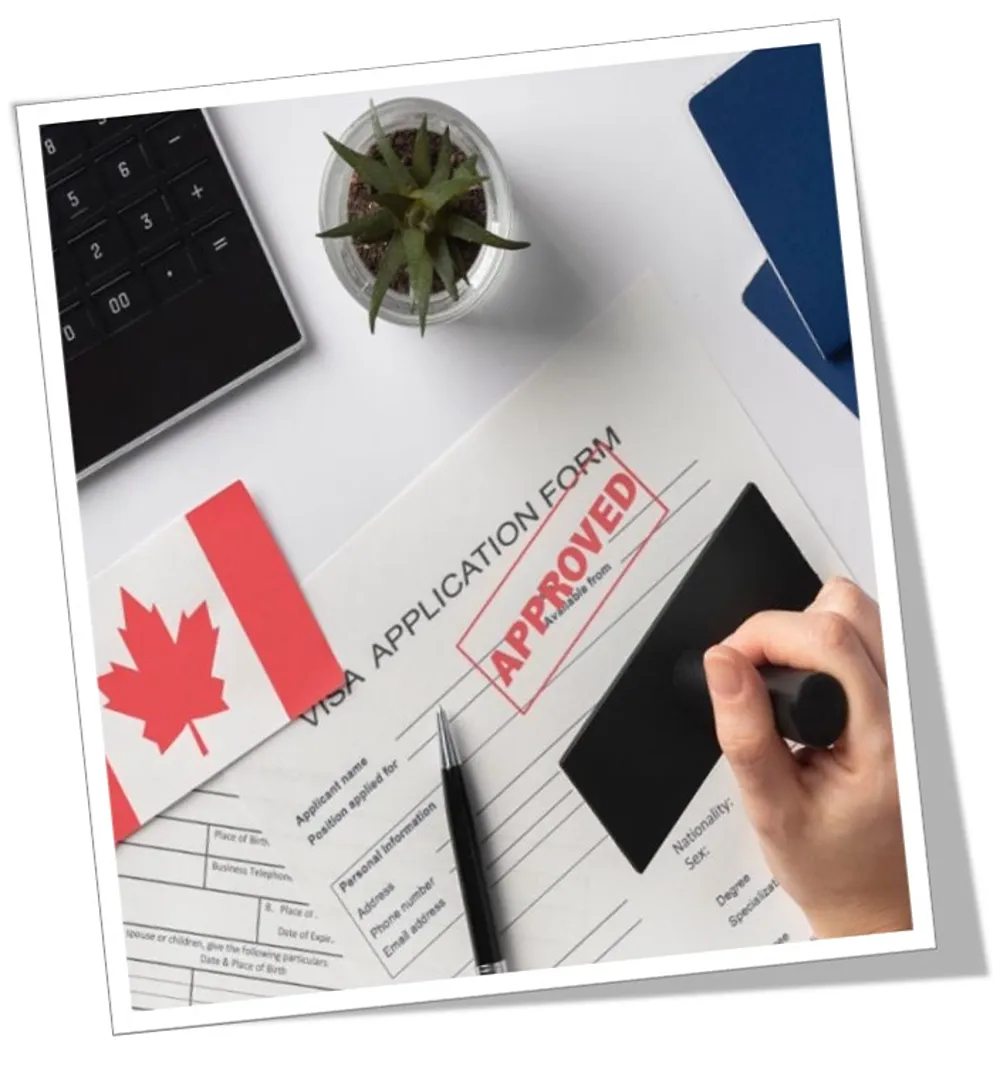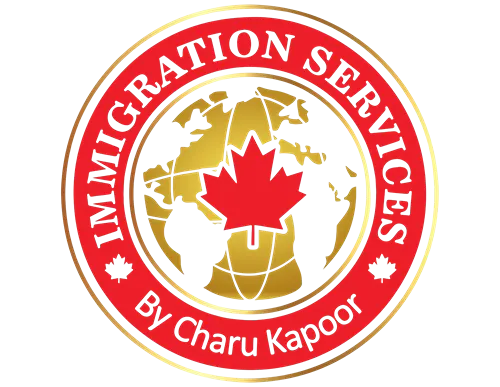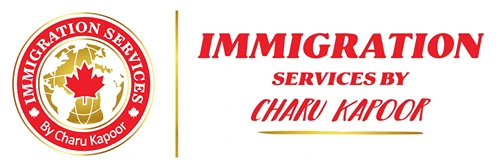Visitor Visas
A visitor visa, often known as a Temporary Resident Visa (TRV), is an official immigration document that grants foreign individuals the permission to travel to and enter Canada. Unless you are a citizen of a country that is exempt from requiring a visa, you will need a visitor visa to enter Canada.
This document is crucial for maintaining the integrity of Canada’s immigration system and ensuring that individuals entering the country are doing so for lawful and legitimate reasons. It helps Canadian immigration authorities verify the identity and intentions of visitors, thus contributing to border security and effective immigration management.
A visitor visa is issued for a specified period, allowing visitors to stay in Canada temporarily before returning to their home country. It’s important to note that the issuance of a visitor visa is subject to meeting specific requirements, including demonstrating sufficient funds for the visit, having ties to your home country to ensure your return, and a clear purpose for your visit to Canada.


Discover your Canadian
Immigration Options
Understanding Canadian Visitor Visas
A Visitor Visa, also known as a Temporary Resident Visa (TRV), is a critical immigration document that grants foreign individuals the authorization to travel to and enter Canada. Unless you belong to a visa-exempt country, obtaining a visitor visa is a mandatory requirement for entering Canada, regardless of your purpose for travel, whether it’s for educational pursuits, temporary employment, or leisurely exploration.
Canadian visitor visas come in two main types: single entry visas and multiple entry visas. A single entry visa allows foreign nationals to enter Canada on a one-time basis. On the other hand, a multiple entry visa permits its holders to travel in and out of Canada as frequently as they need during its validity period. Applicants do not need to specify which type they’re applying for; rather, they are automatically considered for a multiple entry visa and are usually granted a single entry visa only under exceptional circumstances.
Multiple entry visitor visas provide a tremendous advantage, allowing the visa holder to visit Canada multiple times over a span of several years, as long as the visa remains valid. The duration of validity can extend up to 10 years, though the specific timeframe is determined by the discretion of the visa officer handling the application. Additionally, if you hold any other status document, such as a study permit or work permit, and are not otherwise exempt from obtaining a visa, you will automatically receive a visitor visa to enter Canada for the purpose of attending your studies or temporary work. Typically, this will be a multiple entry visa. If you choose to temporarily leave Canada during your educational or work period, you won’t need to reapply for another visitor visa as long as both your permit and visa are still valid.
Who Needs a Visitor Visa?
When planning a visit to Canada, it’s essential to grasp the intricacies of the entry requirements, particularly regarding the need for a visitor visa. These regulations apply to individuals who are neither Canadian citizens nor permanent residents, and who do not qualify for visa exemptions. A visitor visa, also known as a Temporary Resident Visa (TRV), is a crucial immigration document that permits foreign nationals to travel to and enter Canada for various purposes, including tourism, studies, and temporary work assignments.
However, certain exceptions and special cases come into play. For Canadian permanent residents, the avenue of applying for a visitor visa is closed, irrespective of the validity of their permanent resident card. Instead, they are required to go through the process of obtaining a Permanent Resident Travel Document (PRTD) to re-enter Canada. Similarly, Canadian citizens, regardless of whether they possess dual citizenship, cannot opt for a visitor visa; they must rely on a valid Canadian passport for travel purposes.
For those engaging in business activities in Canada, distinct requirements may arise. Business visitors, who are not entering Canada as temporary foreign workers, may find themselves in need of a business visitor visa. These situations underscore the importance of understanding the nuances of Canada’s immigration rules to ensure a seamless entry and stay in the country.
In essence, whether you’re seeking a vacation, pursuing educational opportunities, or conducting business affairs in Canada, being well-versed in the specific entry requirements and potential exemptions is key to a successful and hassle-free visit.
Visa-Exempt Countries
Canada’s entry requirements extend beyond visitor visas, encompassing individuals who enjoy visa exemptions. These exemptions pertain to foreign nationals from specific countries, excluding Canadian citizens and permanent residents, who are granted the privilege to enter Canada without the need for a visitor visa. These agreements, referred to as visa-exempt agreements, allow citizens of designated nations to visit Canada for up to six months without obtaining a traditional visa.
It’s important to note that if foreign nationals from visa-exempt countries intend to travel to Canada by air, they are required to obtain an Electronic Travel Authorization (eTA) prior to their journey. The eTA is an electronic entry requirement that assists in streamlining the entry process for eligible travelers. This digital authorization is linked to the traveler’s passport and remains valid for a duration of up to five years or until the passport’s expiration, whichever comes first.
Canada’s visa-exempt agreements and the introduction of the eTA reflect the country’s commitment to facilitating legitimate travel while maintaining security measures. By understanding these nuances, individuals planning trips to Canada can ensure a smooth and compliant entry, enjoying their time in the country without unnecessary complications.
How to Apply?
For candidates requiring a visitor visa to enter Canada, the application process offers multiple avenues: online submission, paper application, or in-person submission at a Visa Application Center (VAC). It’s important to note that if you’re traveling as a family, each family member, including dependent children, must complete their own application. However, the convenience lies in the fact that all applications can be submitted collectively.
Applicants should be aware that depending on their country of citizenship, they might be required to provide biometric information as part of their application. This usually involves fingerprinting and a photograph. Biometric data can be collected after the initial submission of the visitor visa application, as prompted, or simultaneously during in-person submission at a VAC.
At Charu Kapoor Immigration Ltd, we stand ready to assist you throughout this process. Whether it’s clarifying the application requirements, guiding you through biometric procedures, or addressing any queries, our dedicated team is here to ensure a seamless and successful visitor visa application experience. Your journey to Canada begins with us.
Extending a Visitor Visa
Visitor visas, available in both single entry and multiple entry options, present a legal pathway for foreign nationals to reside in Canada for a duration of up to six months. Once this period concludes, your authorized stay comes to an end, and you are required to depart from the country. For those desiring a lengthier stay, exceeding the six-month mark, an extension application becomes a viable solution. However, it’s crucial to initiate this process while your temporary resident status remains valid, typically at least 30 days before its expiration.
In situations where your current visa expires while your extension application is still under review, a concept known as “implied status” comes into play. This mechanism permits you to remain in Canada throughout the processing period, as you await a decision regarding your extension. This scenario underscores the significance of applying for an extension well in advance to ensure a seamless transition and adherence to legal guidelines.
Furthermore, it’s worth noting that visitor visa holders with eligible credentials also have the opportunity to explore pathways to permanent resident status through various immigration programs offered by Canada. At Charu Kapoor Immigration Ltd, we are dedicated to providing comprehensive support and guidance, from extending your temporary resident status to exploring permanent resident avenues, ensuring your journey aligns with Canadian immigration regulations and aspirations.

